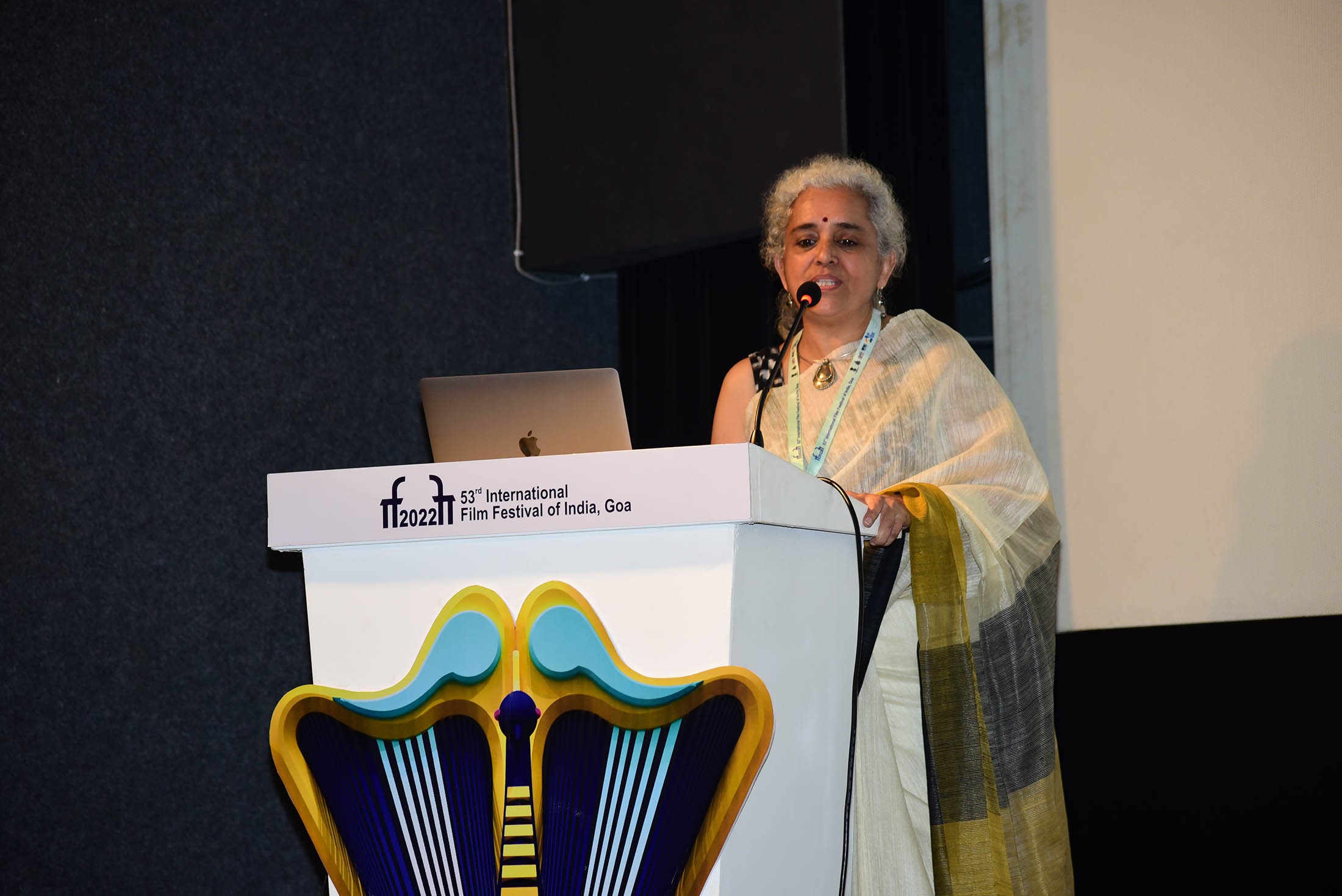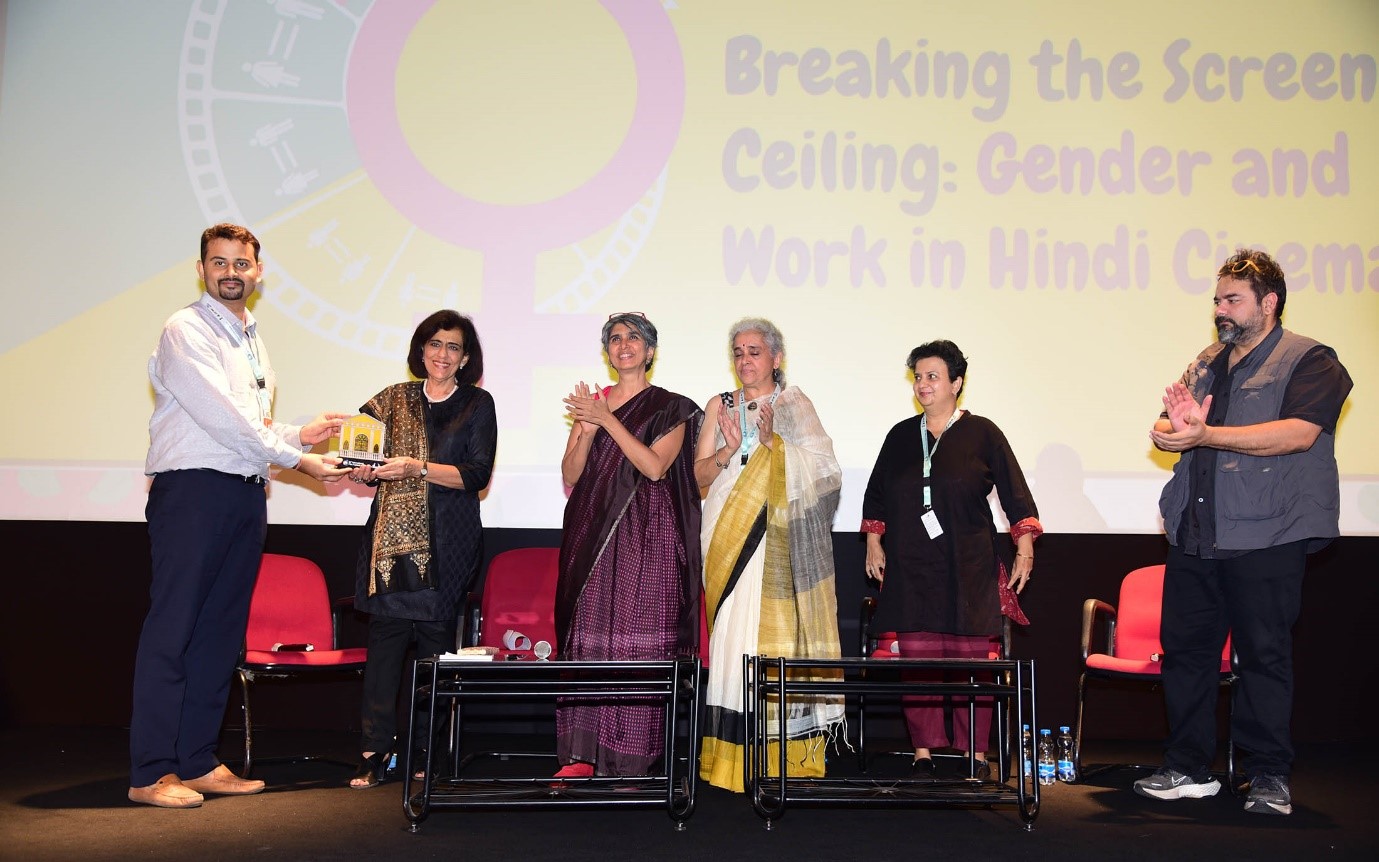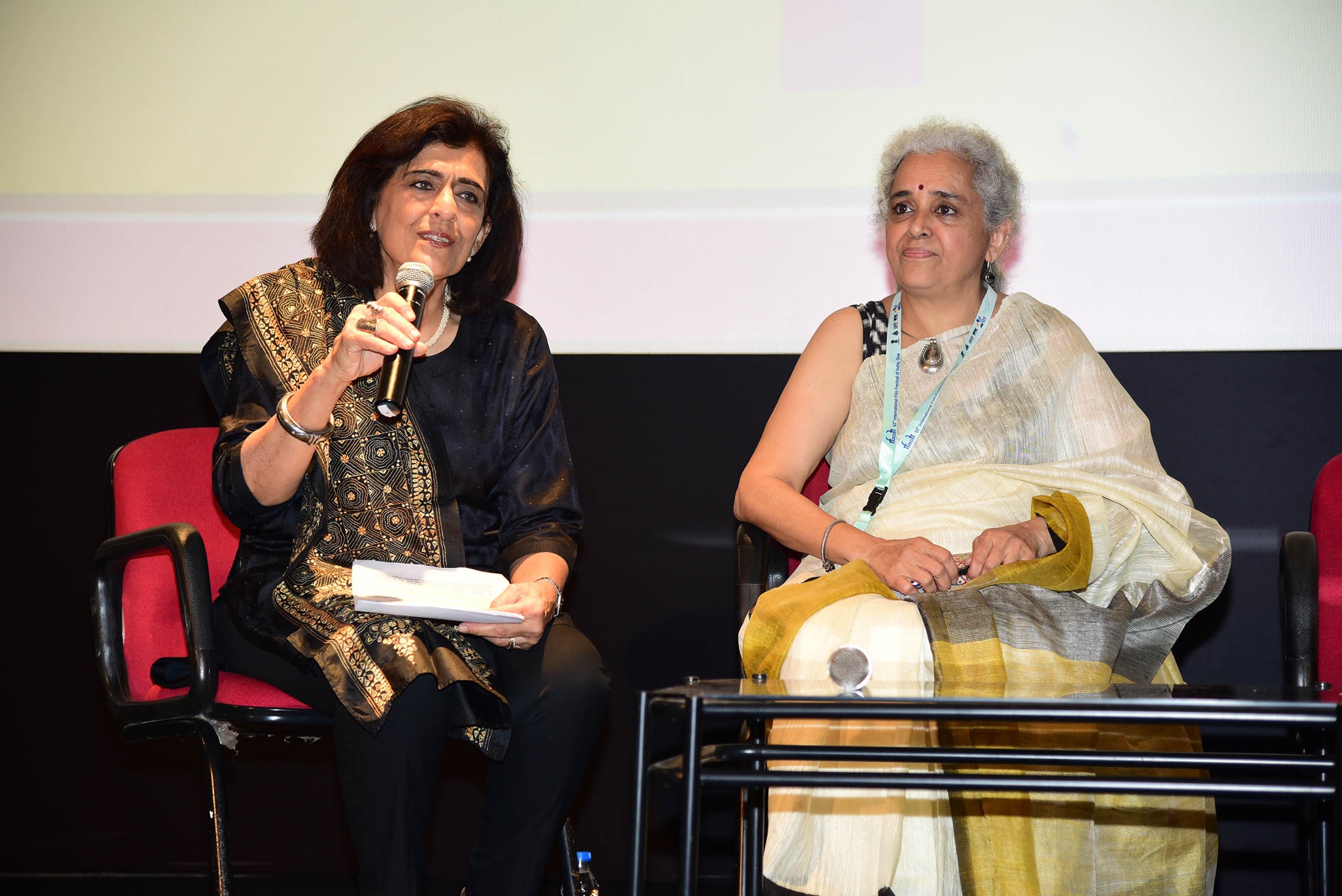IFFI 53 witnesses Masterclass on Gender Participation in Hindi Cinema
Ministry of Information & Broadcasting

Low Presence of women in creative decision making of films: Prof Lakshmi Lingam
Presence of women on movie sets automatically changes the behaviour of men: Pushan Kripalani
Bringing about gender rights has to do with carrying out conversations & putting out guidelines to follow: Rashmi Lamba
Women in power act exactly like men: Prof Shilpa Phadke
Posted On:
24 NOV 2022 7:42PM by PIB Mumbai
#IFFIWOOD, 24 November 2022
A Masterclass on Gender Participation in Hindi Cinema was held at the ongoing 53rd International Film Festival of India along with Tata Institute of Social Sciences today in Panaji, Goa wherein a presentation on “Breaking the Screen Ceiling: Gender and Work in Hindi Cinema” was held. Key insights from a quantitative research study on gender and work both on and off screen in Hindi cinema were presented during the masterclass. A total of 1930 characters from 35 films were analysed for their gender representation on screen, types of roles played by characters in various genders, their occupations and other parameters. The study also explored the most popular departments of film making for women crew members, the levels at which they work and the share of women winning film awards. (Click here to see the presentation)
The panel comprised of Prof Lakshmi Lingam, Prof Shilpa Phadke and Ms. Rashmi Lamba from the TISS research team, National award winning film critic Ms. Meenakshi Shedde, and noted filmmaker Mr. Pushan Kripalani. The panellists shared their reflections on the topic ‘Gender Participation in Hindi Cinema’ and the findings of the study were shared and discussed. They panellists also deliberated on the steps that can be taken to productively respond to the lack of gender diversity within the Hindi cinema ecosystem and increase overall participation of women. Two short AVs/public service announcements, made by the students of TISS, were also screened and widely appreciated by the keen audience. One dealt with lack of bathroom facilities for women on the film sets and the other critiqued the beauty stereotypes perpetuated by cinema.

Prof Lakshmi Lingam, Dean of School for media and cultural studies while making her presentation stated that “Women are mostly present in the post production phase while their presence is comparatively low in creative decision making process. She highlighted the fact that the nation has had only 4 women Union Ministers of Information and Broadcasting in the last 75 years, only 4 female chairpersons of Central Board of Film Certification (CBFC) in last 72 years and only 29% female board members in the last 13 years”. She further added that according to the study, professions of men and women are also stereotyped. She said “Purpose of the study is to initiate a conversation with the industry. A lot needs to be done to bring equality. Many films show that intimacy gets initiated only by men and it has no idea of consent, it shows illegal ways being used by actors to get consent which send the wrong message to society”. She further added that post ‘Nirbhaya’ lot of legislations have changed and a big shift has happened and films need to acknowledge these big shifts.

Mr. Pushan Kripalani, noted Director of film GoldFish, talked about the increasing percentage of women on his sets being a happy accident and how the presence of women on the sets has changed the behaviour of men in a positive way. He said “when we are communicating with the film crew we use a lot of words as punctuation and it has become the lexicon of communication. Swearing on the sets become part of the game and it shows camaraderie in a way but with women of the sets, this changes”. He also said they arranged creche for Kalki’s child. Talking about the misogyny in the industry, Mr. Kripalani remarked that “Every room I walked in as a cinematographer was drenched with misogyny and I didn’t want to be a part of it and that’s why I chose Independent cinema”.
Prof Shilpa Phadke, co-author of book ‘Why Loiter’ and co-director of the documentary film ‘Under the Open Sky’, highlighted the declining participation of women in workforce in spite of having high literacy rate. She said “Women in power act exactly like men. Just having them there will make a huge difference. Even in public space, women make other people more comfortable.”

Ms Rashmi Lamba, talked about the importance of providing woman role models in movies. She said “Why I volunteer with Geena Davis Institute is because I believe in her mantra that if you can see it, you can be it”. She said that she is truly inspired by that. The institute is studying gender equality and stereotyping of masculinity which also leads to stereotyping of women roles. Ms. Lamba further added that “In US, by using data, they have found that they have achieved gender neutrality with family films because people can identify with all the characters and our study will also help in making such changes in India”. She exhorted that “bringing about gender rights has to do with carrying out conversations and putting out guidelines to follow. Young professions should look at these concerns including cinematic language of the camera which is sexist”.
Ms. Meenakshi Shedde, who is the national award winner of Best film critique talked about the actress assault case in Kerala. She mentioned that the women collective in the Kerala film industry has punished the accused by not giving them roles. The audience asked interesting questions about the research findings, especially how the data could be used to do advocacy work for changes in the industry as well as at the level of larger cultural policies.
***
PIB IFFI CAST AND CREW | Anubhav/Anakha/Darshana | IFFI 53 – 99
Follow us on social media:![]()
@PIBMumbai  /PIBMumbai
/PIBMumbai ![]() /pibmumbai
/pibmumbai  pibmumbai[at]gmail[dot]com
pibmumbai[at]gmail[dot]com  /PIBMumbai
/PIBMumbai  /pibmumbai
/pibmumbai